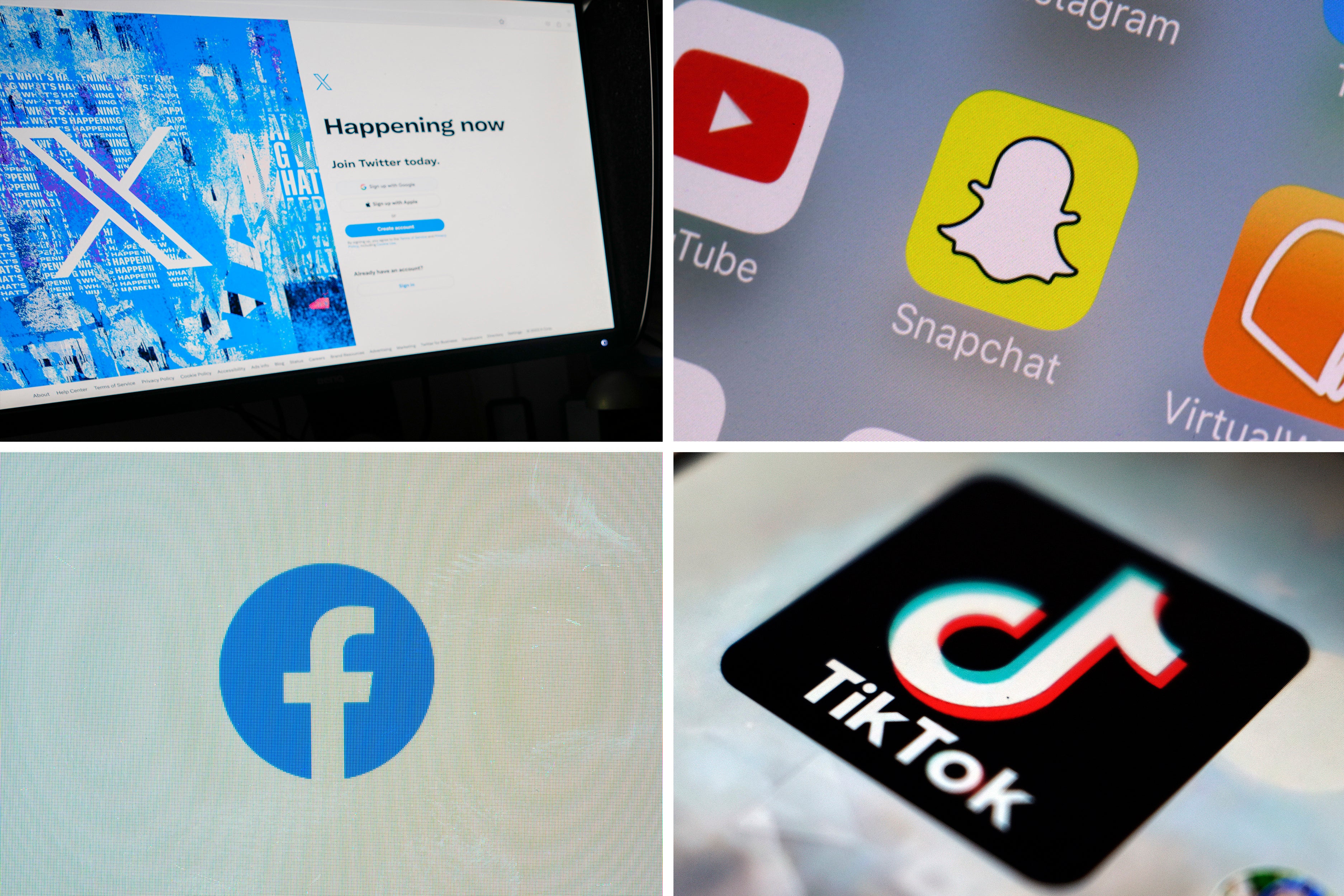Fake news on social media is the crisis we’re all ignoring – trust me, I worked for Twitter
With billions of people around the world going to the polls this year, making sure voters have access to verfied, true information is critical. We cannot afford to disregard the importance of keeping a lid on the lies, writes former Twitter (now X) staffer Marc Burrows


Your support helps us to tell the story
From reproductive rights to climate change to Big Tech, The Independent is on the ground when the story is developing. Whether it's investigating the financials of Elon Musk's pro-Trump PAC or producing our latest documentary, 'The A Word', which shines a light on the American women fighting for reproductive rights, we know how important it is to parse out the facts from the messaging.
At such a critical moment in US history, we need reporters on the ground. Your donation allows us to keep sending journalists to speak to both sides of the story.
The Independent is trusted by Americans across the entire political spectrum. And unlike many other quality news outlets, we choose not to lock Americans out of our reporting and analysis with paywalls. We believe quality journalism should be available to everyone, paid for by those who can afford it.
Your support makes all the difference.Separating the truth from the lies on social media will be a defining challenge of our time. It has meaningful, real-world repercussions and, frankly, history will not remember us well if we continue to downplay the significance of the threat of misinformation.
Not only this, but as AI and deep-fake technology becomes more powerful and more accessible, the problem is going to get worse.
Back when I worked at Twitter, in the days before Elon Musk’s takeover and self-consciously edgy and embarrassing “X” rebrand, we took the threat of misinformation incredibly seriously. I worked on Twitter’s curation team during multiple elections, including in the UK and the US, and through the first two years of the pandemic. I saw how false information spreads quickly and is believed easily, and how difficult it is to stop it travelling once it starts.
We worked with Reuters and the Associated Press to debunk rapidly growing and unreliable stories. We coined the term “pre-bunk” for identifying likely misinformation before it spread. Misleading posts were labelled once they reached a certain influence threshold.
We all knew this was mission critical, because Twitter punches above its weight in terms of influence on the news agenda and public conversation – that’s why Musk became so invested. We all wanted to make it safer. Better. A force for good.
The curation team – my team – was among the first to be cut in Musk’s new regime. In his first weeks, and, in my view, with a lack of subtlety, grace or much sense, he undid years of work; wiping out or reducing those areas of the company that dealt with misinformation and community moderation, disbanding the Trust and Safety team, and unbanning accounts previously sanctioned for spreading harmful lies.
Since then, the EU has found that X is the social media platform with the highest disinformation rate. As Miah Hammond-Errey, the director of the Emerging Technology Program at the United States Studies Centre at the University of Sydney said last year: “Few recent actions have done more to make a social media platform safe for disinformation, extremism, and authoritarian regime propaganda than the changes to Twitter since its purchase by Elon Musk.”
Those services Musk cut are needed more than ever. Just last week, Rishi Sunak, during a televised debate with Keir Starmer, repeatedly mentioned a supposed £2,000 tax hike under a Labour government.
The next day, it was debunked by several sources, but Conservative ministers keep using it. Why? Because £2,000 is a big, simple, shareable story. It will travel far faster than the debunks, written by careful journalists with painstaking attentiuon to detail.
It’s not just a right-wing issue. When a protestor threw a milkshake over Nigel Farage in Clacton last week, rumours swirled within hours that the whole thing was a false-flag stunt, and that the attacker was Farage supporter and conservative influencer Emily Hewertson who, despite looking a bit like Farage’s dairy-based assailant, was actually campaigning in Wolverhampton that day, 184 miles away. Five days later, screengrabs “proving” the milkshaking was “staged” are still circulating.
Why? Because We’re wired to share shocking or gossipy information, and lies are usually more interesting than the boring old truth. In 2018, an MIT study showed that false stories are 70 per cent more likely to be shared and reach a wide audience six times faster than real ones. I can absolutely believe it. We’ve all seen fake news spread. We’ve all had the clueless relative on Facebook sharing easily disproved infographic JPGs about vaccines or the ‘true’ environmental impact of electric vehicles, with no source, and we’ve seen that same image then pop up again and again across our social bubbles.
False information online is a deadly problem, and it’s going to get worse. Open AI’s Sora app, for example, which is launching later this year, will allow users to manipulate video to add elements or change a location, creating seamless “proof” of pretty much anything they want. With video-based TikTok a key election battleground this year, the potential for turbo-charging fake news is terrifying.
Social networks are trying to combat this, to a greater and (in Musk’s case) lesser extent, and we need to help them – features like X’s Community Notes are a start, though it’s painfully little in comparison to what the platform used to have.
Fact checking from reputable journalistic sources like BBC Verify or Full Fact help too, though those stories spread far slower than the lies they debunk.
We need to help. We need to do our bit. Report obvious misinformation. Think before you share. Check sources. Take this seriously. Because the truth is out there … but so are the lies.
Join our commenting forum
Join thought-provoking conversations, follow other Independent readers and see their replies
Comments